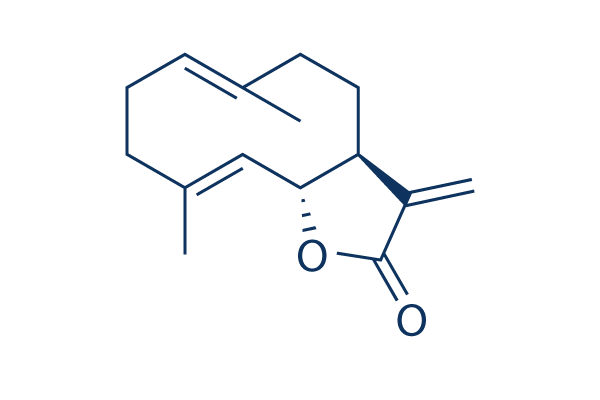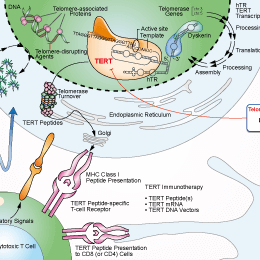
- Bioactive Compounds
- By Signaling Pathways
- PI3K/Akt/mTOR
- Epigenetics
- Methylation
- Immunology & Inflammation
- Protein Tyrosine Kinase
- Angiogenesis
- Apoptosis
- Autophagy
- ER stress & UPR
- JAK/STAT
- MAPK
- Cytoskeletal Signaling
- Cell Cycle
- TGF-beta/Smad
- DNA Damage/DNA Repair
- Compound Libraries
- Popular Compound Libraries
- Customize Library
- Clinical and FDA-approved Related
- Bioactive Compound Libraries
- Inhibitor Related
- Natural Product Related
- Metabolism Related
- Cell Death Related
- By Signaling Pathway
- By Disease
- Anti-infection and Antiviral Related
- Neuronal and Immunology Related
- Fragment and Covalent Related
- FDA-approved Drug Library
- FDA-approved & Passed Phase I Drug Library
- Preclinical/Clinical Compound Library
- Bioactive Compound Library-I
- Bioactive Compound Library-Ⅱ
- Kinase Inhibitor Library
- Express-Pick Library
- Natural Product Library
- Human Endogenous Metabolite Compound Library
- Alkaloid Compound LibraryNew
- Angiogenesis Related compound Library
- Anti-Aging Compound Library
- Anti-alzheimer Disease Compound Library
- Antibiotics compound Library
- Anti-cancer Compound Library
- Anti-cancer Compound Library-Ⅱ
- Anti-cancer Metabolism Compound Library
- Anti-Cardiovascular Disease Compound Library
- Anti-diabetic Compound Library
- Anti-infection Compound Library
- Antioxidant Compound Library
- Anti-parasitic Compound Library
- Antiviral Compound Library
- Apoptosis Compound Library
- Autophagy Compound Library
- Calcium Channel Blocker LibraryNew
- Cambridge Cancer Compound Library
- Carbohydrate Metabolism Compound LibraryNew
- Cell Cycle compound library
- CNS-Penetrant Compound Library
- Covalent Inhibitor Library
- Cytokine Inhibitor LibraryNew
- Cytoskeletal Signaling Pathway Compound Library
- DNA Damage/DNA Repair compound Library
- Drug-like Compound Library
- Endoplasmic Reticulum Stress Compound Library
- Epigenetics Compound Library
- Exosome Secretion Related Compound LibraryNew
- FDA-approved Anticancer Drug LibraryNew
- Ferroptosis Compound Library
- Flavonoid Compound Library
- Fragment Library
- Glutamine Metabolism Compound Library
- Glycolysis Compound Library
- GPCR Compound Library
- Gut Microbial Metabolite Library
- HIF-1 Signaling Pathway Compound Library
- Highly Selective Inhibitor Library
- Histone modification compound library
- HTS Library for Drug Discovery
- Human Hormone Related Compound LibraryNew
- Human Transcription Factor Compound LibraryNew
- Immunology/Inflammation Compound Library
- Inhibitor Library
- Ion Channel Ligand Library
- JAK/STAT compound library
- Lipid Metabolism Compound LibraryNew
- Macrocyclic Compound Library
- MAPK Inhibitor Library
- Medicine Food Homology Compound Library
- Metabolism Compound Library
- Methylation Compound Library
- Mouse Metabolite Compound LibraryNew
- Natural Organic Compound Library
- Neuronal Signaling Compound Library
- NF-κB Signaling Compound Library
- Nucleoside Analogue Library
- Obesity Compound Library
- Oxidative Stress Compound LibraryNew
- Plant Extract Library
- Phenotypic Screening Library
- PI3K/Akt Inhibitor Library
- Protease Inhibitor Library
- Protein-protein Interaction Inhibitor Library
- Pyroptosis Compound Library
- Small Molecule Immuno-Oncology Compound Library
- Mitochondria-Targeted Compound LibraryNew
- Stem Cell Differentiation Compound LibraryNew
- Stem Cell Signaling Compound Library
- Natural Phenol Compound LibraryNew
- Natural Terpenoid Compound LibraryNew
- TGF-beta/Smad compound library
- Traditional Chinese Medicine Library
- Tyrosine Kinase Inhibitor Library
- Ubiquitination Compound Library
-
Cherry Picking
You can personalize your library with chemicals from within Selleck's inventory. Build the right library for your research endeavors by choosing from compounds in all of our available libraries.
Please contact us at [email protected] to customize your library.
You could select:
- Antibodies
- Bioreagents
- qPCR
- 2x SYBR Green qPCR Master Mix
- 2x SYBR Green qPCR Master Mix(Low ROX)
- 2x SYBR Green qPCR Master Mix(High ROX)
- Protein Assay
- Protein A/G Magnetic Beads for IP
- Anti-Flag magnetic beads
- Anti-Flag Affinity Gel
- Anti-Myc magnetic beads
- Anti-HA magnetic beads
- Magnetic Separator
- Poly DYKDDDDK Tag Peptide lyophilized powder
- Protease Inhibitor Cocktail
- Protease Inhibitor Cocktail (EDTA-Free, 100X in DMSO)
- Phosphatase Inhibitor Cocktail (2 Tubes, 100X)
- Cell Biology
- Cell Counting Kit-8 (CCK-8)
- Animal Experiment
- Mouse Direct PCR Kit (For Genotyping)
- New Products
- Contact Us
Costunolide
Synonyms: NSC 106404
Costunolide (NSC 106404), a natural sesquiterpene compound with multiple biological activities; inhibits FPTase with IC50 of 20 μM, also inhibits telomerase with IC50 of 65-90 μM.

Costunolide Chemical Structure
CAS No. 553-21-9
Purity & Quality Control
Batch:
Purity:
99.99%
99.99
Costunolide Related Products
| Related Products | EGCG ((-)-Epigallocatechin Gallate) BIBR 1532 RHPS 4 methosulfate Cycloastragenol | Click to Expand |
|---|---|---|
| Related Compound Libraries | FDA-approved Drug Library Natural Product Library Apoptosis Compound Library DNA Damage/DNA Repair compound Library Cell Cycle compound library | Click to Expand |
Signaling Pathway
Biological Activity
| Description | Costunolide (NSC 106404), a natural sesquiterpene compound with multiple biological activities; inhibits FPTase with IC50 of 20 μM, also inhibits telomerase with IC50 of 65-90 μM. | ||||||
|---|---|---|---|---|---|---|---|
| Targets |
|
| In vitro | ||||
| In vitro | Costunolide inhibits the growth and telomerase activity of MCF-7 and MDA-MB-231 cells in a concentration- and time-dependent manner. [1] Costunolide also inhibits the farnesylation process of human lamin-B by farnesyl–proteinttransferase (FPTase), in a dose dependent manner. Continuously treatment of Costunolide for 48 hours will significantly decrease proliferation of human tumor cells (A549, SK-OV-3, SK-MEL-2, XF498 and HCT-1) in a dose-dependent manner. [2] Costunolide induces apoptosis by ROS-mediated mitochondrial permeability transition and cytochrome C release to the cytosol in HL-60 human leukemia cells. [3] A recent study indicates that Costunolide shows significant antifungal activity, including Trichophyton mentagrophytes, T.simlii, T.rubrum, and so on. [4] | |||
|---|---|---|---|---|
| Kinase Assay | Telomerase activity assay | |||
| The telomerase activity is measured by the TRAP assay using the TRAPez Telomerase Detection Kit, which includes primers of a 36-bp internal control (IC) for quantifying the amplification of telomerase activity within a linear range close to 2.5 logs. For RNase treatment, 10μL of extract are incubated with 1μg of RNase at 37 °C for 20 minutes. The products of the TRAP assay are resolved by electrophoresis in a nondenaturing12% PAGE in a buffer containing 0.5 × Tris–borate EDTA and detected by autoradiograph. For quantification of TRAP products, the dried gels are exposed to Fuji Imaging Plate at room temperature. Results are corrected for background, and a standard value of 100 is given to the untreated control cell signal. Signal intensities of Costunolide-treated cells are compared to the standard and are expressed as a fraction of the maximum value of 100. [1] | ||||
| Cell Research | Cell lines | MCF-7 and MDA-MB-231 cells | ||
| Concentrations | 0-100 μM | |||
| Incubation Time | 48 hours | |||
| Method | 1) Plate 500-10,000 cells in 200 μL media per well in a 96 well plate. Leave 8 wells empty for blank controls. 2) Incubate (37 °C, 5% CO2) overnight to allow the cells to attach to the wells. 3) Add 2 μL of Costunolide dissolved in DMSO to each well. Place on a shaking table, 150 rpm for 5 minutes, to thoroughly mix the samples into the media. 5) Incubate (37 °C, 5% CO2) for 48 hours to allow Costunolide to take effect. 6) Make 2 mL or more of MTT solution per 96 well plate at 5 mg/mL in PBS. Do not make a stock as MTT in solution is not stable long-term. 7) Add 20 μL MTT solution to each well. Place on a shaking table, 150 rpm for 5 minutes, to thoroughly mix the MTT into the media. 8) Incubate (37 °C, 5% CO2) for 1-5 hours to allow the MTT to be metabolized. 9) Dump off the media. (Dry plate on paper towels to remove residue if necessary. 10) Resuspend formazan (MTT metabolic product) in 200 μL DMSO. Place on a shaking table, 150 rpm for 5 minutes, to thoroughly mix the formazan into the solvent. 11) Read optical density at 560 nm and subtract background at 670 nm. Optical density should be directly correlated with cell quantity. | |||
| In Vivo | ||
| In vivo | Costunolide inhibits angiogenic response by blocking the angiogenic factor signaling pathway. In a mouse corneal micropocket assay, Costunolide reduces VEGF-stimulated neovascularization in mice. [5] | |
|---|---|---|
| Animal Research | Animal Models | Hydron N containing VEGF are implanted into mouse cornea. |
| Dosages | 100 mg/kg | |
| Administration | Intraperitoneal injection once daily. | |
Chemical Information & Solubility
| Molecular Weight | 232.32 | Formula | C15H20O2 |
| CAS No. | 553-21-9 | SDF | Download Costunolide SDF |
| Smiles | CC1=CCCC(=CC2C(CC1)C(=C)C(=O)O2)C | ||
| Storage (From the date of receipt) | |||
|
In vitro |
DMSO : 47 mg/mL ( (202.3 mM) Moisture-absorbing DMSO reduces solubility. Please use fresh DMSO.) Ethanol : 47 mg/mL Water : Insoluble |
Molecular Weight Calculator |
|
In vivo Add solvents to the product individually and in order. |
In vivo Formulation Calculator |
||||
Preparing Stock Solutions
Molarity Calculator
In vivo Formulation Calculator (Clear solution)
Step 1: Enter information below (Recommended: An additional animal making an allowance for loss during the experiment)
mg/kg
g
μL
Step 2: Enter the in vivo formulation (This is only the calculator, not formulation. Please contact us first if there is no in vivo formulation at the solubility Section.)
% DMSO
%
% Tween 80
% ddH2O
%DMSO
%
Calculation results:
Working concentration: mg/ml;
Method for preparing DMSO master liquid: mg drug pre-dissolved in μL DMSO ( Master liquid concentration mg/mL, Please contact us first if the concentration exceeds the DMSO solubility of the batch of drug. )
Method for preparing in vivo formulation: Take μL DMSO master liquid, next addμL PEG300, mix and clarify, next addμL Tween 80, mix and clarify, next add μL ddH2O, mix and clarify.
Method for preparing in vivo formulation: Take μL DMSO master liquid, next add μL Corn oil, mix and clarify.
Note: 1. Please make sure the liquid is clear before adding the next solvent.
2. Be sure to add the solvent(s) in order. You must ensure that the solution obtained, in the previous addition, is a clear solution before proceeding to add the next solvent. Physical methods such
as vortex, ultrasound or hot water bath can be used to aid dissolving.
Tech Support
Answers to questions you may have can be found in the inhibitor handling instructions. Topics include how to prepare stock solutions, how to store inhibitors, and issues that need special attention for cell-based assays and animal experiments.
Tel: +1-832-582-8158 Ext:3
If you have any other enquiries, please leave a message.
* Indicates a Required Field
Tags: buy Costunolide | Costunolide supplier | purchase Costunolide | Costunolide cost | Costunolide manufacturer | order Costunolide | Costunolide distributor







































